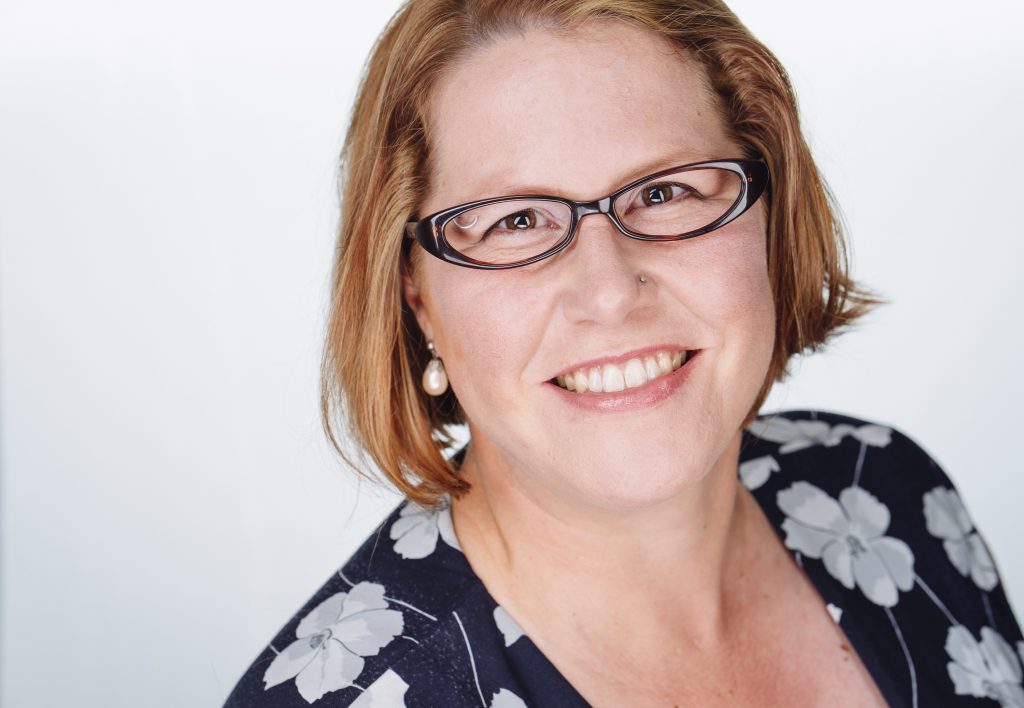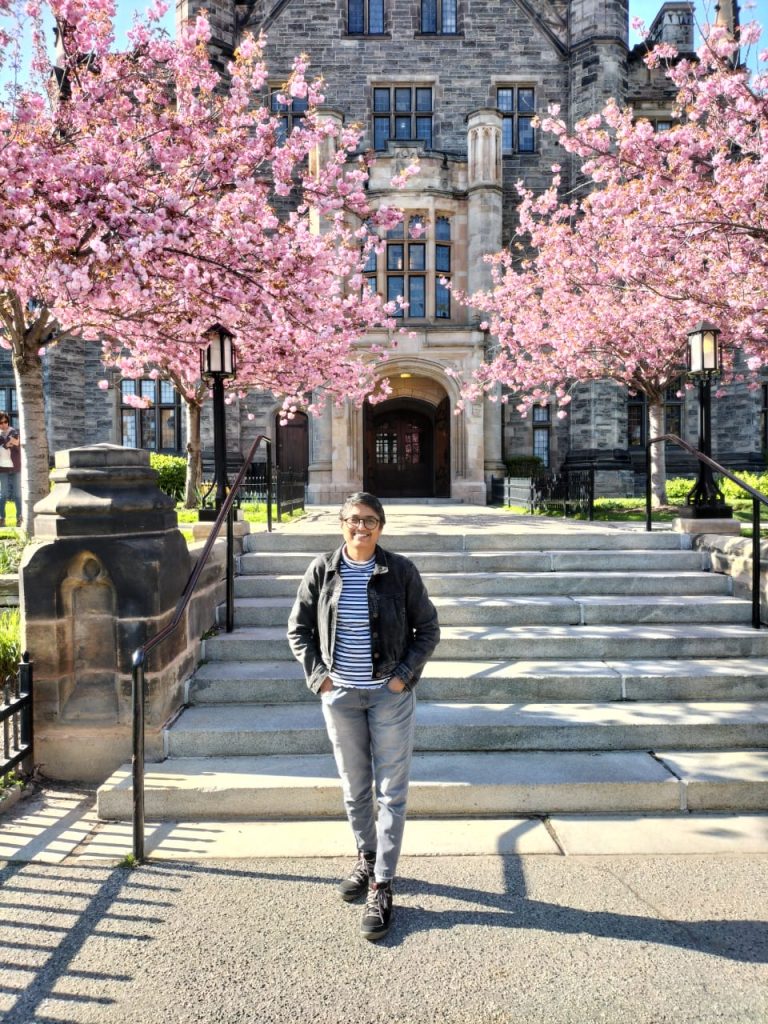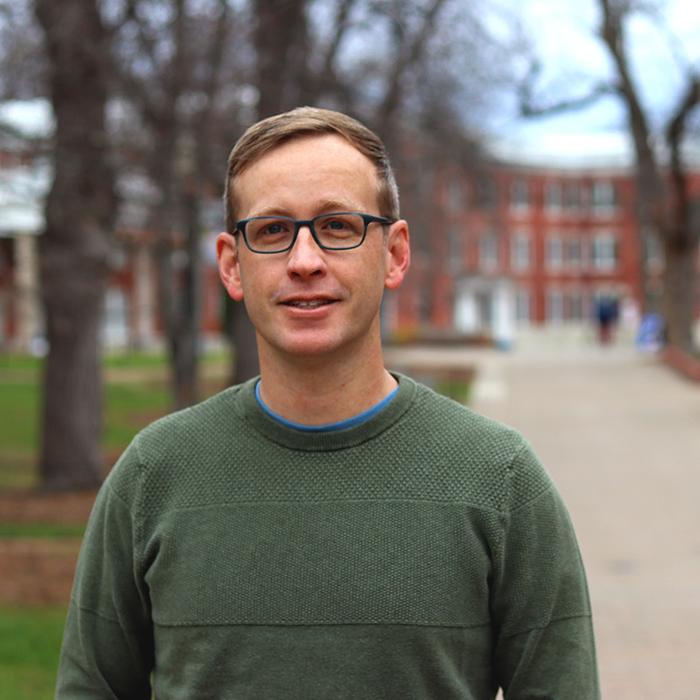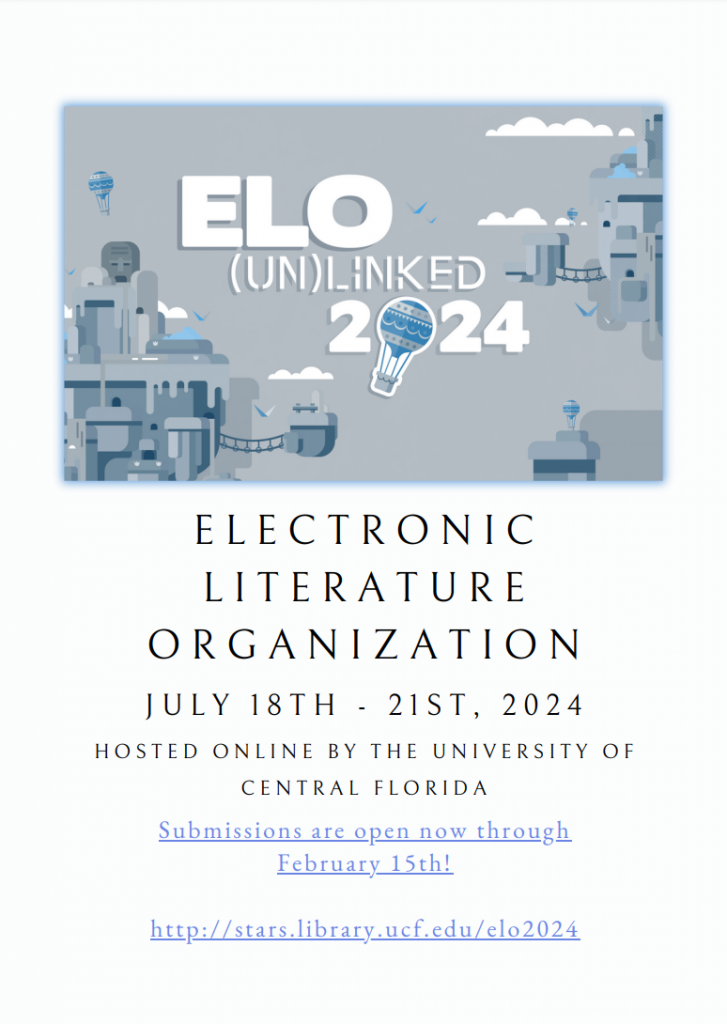
Organizers: Caitlin Fisher (York) and Lai-Tze Fan (Waterloo)
Locations: Toronto, Canada and Waterloo, Canada
For its 25th anniversary, Electronic Literature Organization (ELO) is holding an international in-person conference and media arts festival themed “ELO25 @ 25: Love Letters to the Past and Future” from July 10-13, 2025. ELO25 @ 25 is a joint hosting between the University of Waterloo and York University. Optional workshops will happen July 10 at the University of Waterloo in Kitchener-Waterloo, Canada. The main conference will happen July 11-13 at York University in Toronto, Canada. We are also excited to announce that we are partnering with Vector Media Arts Festival to share attendees of our respective media art festivals and to collaborate in select events.
The ELO has always been a future-focused organization, with a deep understanding of both digital and analogue histories and processes. And for 25 years the Electronic Literature Organization has nurtured born-digital experimentation. E-lit is an expansive, interdisciplinary arena bridging literature, technology, art, design, and performance, and there is no better time to learn from ELO’s foundational histories as we collectively move toward society’s literary and technological futures.
Honoring this, we encourage submissions that delve into the rich histories of e-lit and of our own organization. Affection, critique, desire, nostalgia, honoring pioneers. At the same time, an anniversary is a moment to look forward, so we also solicit work that speculates on possible futures–future e-lit, future technologies to support literatures, ELO2050, new speculative avant-gardes, e-lit as a world-building practice. We want your ideas around archives and what we save, futureproofing, accidental futures, equity, steampunk, future libraries and practices, e-lit for technologies that do not yet exist. We welcome approaches to how e-lit also brings Arts-based questions, frameworks, and practices to technological applications and developments. How might our practices inform future tools? Literacies? Audiences? We also welcome work that stretches the boundaries of where e-lit might connect that we don’t yet see represented widely in the field, from physics and health to data science and misinformation. Join us as we ask what the ELO has learned and ponder what the next 25 years will bring.
Website: elo25.org
Contact e-mail: elo25@eliterature.org
Submission portal open November 5 (accessible via conference website)
Types of submissions (deadline for all: January 5 January 15, 2025 AOE)
Individuals may NOT appear in the final program more than twice as lead authors/artists/speakers, but may participate in program events more than twice.
Papers
300-word abstracts for 15-min papers. In a separate document, please include 200-300 word bios for each speaker. There will be an opportunity to submit full papers early for consideration for inclusion in published proceedings. Experimental forms encouraged.
Lightning talks 150-word abstracts for 5-min talks. In a separate document, please include 200-300 word bios for each speaker.
Panels with Papers or Lightning talks + Discussion
Proposed panel with 150-word abstracts of three to four 15-min papers or five to six 5-min lightning talks. In a separate document, please include 200-300 word bios for each speaker.
Artist Talks on their Electronic Literature/Media Artworks
An opportunity for e-lit practitioners to discuss their own works in the context of a 15 minute conference slot (as distinct from a performance or reading of that work–if you primarily wish to read or perform, please choose the performance option instead). 300-word abstract and 200-300 word bio.
In-person Workshops
1-hour workshop intended for hands-on interaction, discussion, and instruction on a topic relevant to e-lit. In addition to a description of the workshop and its goals, please specify: (1) how many participants are imagined (between 15-30) and (2) what tools and A/V you will need to run the workshop. All workshops will be held at the University of Waterloo on July 10, 2025.
In-person E-lit and Media Art Readings/Performances
300-word abstracts for each reading/performance, including tech requirements (if any) and a 200-300 word bio. We strongly encourage including a link to the work or detailed outline/imaging.
In-person Works of Electronic Literature/Media Artworks for the Exhibition
300-word abstracts for each artwork, 200-300 word bios for each artist. We strongly encourage including a link to finished or in-process work or detailed outline/imaging.
Curatorial pitches: do you have a vision for curating a specific set of existing e-lit works or soliciting new works that might work together to advance the conference theme? If so, we have limited capacity to support invited curators. Please do not use the portal – reach out individually to us at elo25@eliterature.org with your ideas.
About Waterloo
The University of Waterloo is a leading global research-intensive university, renowned for entrepreneurship and innovation. It has been voted the #1 most innovative university in Canada for 30 of the last 32 years. At Waterloo, ELO 2025 Co-Chair Dr. Lai-Tze Fan directs the U&AI Lab. ELO25 @ 25 workshop attendees will be hosted at Waterloo on Thursday, July 10, 2024. A local train connects Toronto to Kitchener-Waterloo (via Toronto Union GO Train Station to Kitchener GO Train Station).
About York
Located in Toronto, Canada, York University is empowered by a welcoming and diverse community of over 50,000 students, with a uniquely global perspective. It is the current home of the ELO. At York, ELO 2025 Co-Chair and ELO President Dr. Caitlin Fisher directs the Immersive Storytelling Lab and ELO25 @ 25 will be supported by a range of units engaged with e-lit practices.
About Toronto
Toronto is the largest and most diverse city in Canada and a major cultural hub. Over 160 languages are spoken in the city. Toronto’s Pearson airport connects to cities around the world.




